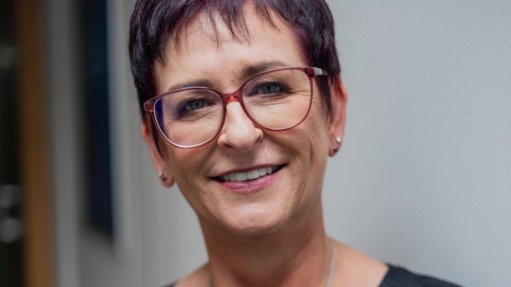Camel-ccino on the menu
One will be hard-pressed to name a country whose economy has not been ravaged by Covid-19. Many countries are now ‘building back better’ – some in not-so-conventional ways – as they attempt to reverse the pandemic’s devastation.
One of the out-of-the-box ways of ensuring that more people become gainfully employed in these difficult times is brewing in Nairobi, Kenya. A restaurant in that city now includes ‘camel-ccino’ and ‘camelattes’ on its menu, with plans to introduce non-beverage products too, such as camel burgers.
Camel products as delicacies are not exactly unheard of in Kenya, but demand for them in the past was driven by ethnic Somalis in the city, whose population is not that big, and by small groups that reside in the countryside. Even then, US news organisation CNN reports, the camel milk supply chain in the country is not formalised – although the Kenya Camel Association avers its members’ yearly turnover is in the tens of millions of greenbacks. Imagine what will happen if the distribution becomes more formalised, including through more of the Nairobi restaurants that attracted CNN’s attention last week. This will mean a whittling down of the unemployment statistics, for one.
Growing – and formalising – the camel- breeding sector is a particularly appealing proposition, considering the climate- change-induced weather patterns in East Africa, where droughts are now a common occurrence and tend to last for longer periods. This is because camels are more resilient than cattle, for example, and can go for about 200 km without water and can maintain their cool in temperatures as high as 49 ºC, making them a viable alternative source of food.
Besides climate considerations, camel milk and meat also have a health appeal, with the United Nations Food and Agriculture Organisation stating that camel milk has three times the amount of Vitamin C found in cow’s milk, while ongoing scientific studies suggest that it has much lower cholesterol and can improve ailments of the digestive system. These benefits are becoming increasingly known to the Kenyan populace. This is exemplified by the Nairobi restaurant owner telling CNN: “We’ve got several people – from gym instructors to health nutritionists – saying they have found a lot of interesting facts about the camel milk and its benefits.”
As I read the piece about this rather out-of-the-box venture, I got reminded of the character Toloki in Zakes Mda’s 2021 novel, Wayfarers’ Hymns. Apparently unable to find conventional employment, he decides to embark on a previously unheard-of career as a professional mourner at strangers’ funerals. He does not make a killing (excuse the pun) but a new income stream becomes available to him, and he even gets an opportunity to ply his trade overseas, if for a short period.
Toloki’s resourcefulness might be in the realm of fiction but, at this juncture, South Africa needs this kind of mindset, if the country is to chip away at its very high unemployment rate of 35.8%, as at the end of the first quarter of this year.
I would start by creating an environment where especially our young people – who bear the brunt of the unemployment burden – can create their own jobs instead of being primed to think that one can only attain a decent livelihood through formal employment. Self-employment in South Africa is very low, being only about 10% of total employment, compared with 30% in countries such as Turkey, Mexico and Brazil – this country’s peers in the upper-middle-income group – according to a World Bank report published last year. The report suggests that South Africa’s unemployment burden would be potentially halved if we raised our self-employment rate to the same level as these countries.
The time for a Toloki mentality is now.
Article Enquiry
Email Article
Save Article
Feedback
To advertise email advertising@creamermedia.co.za or click here
Comments
Announcements
What's On
Subscribe to improve your user experience...
Option 1 (equivalent of R125 a month):
Receive a weekly copy of Creamer Media's Engineering News & Mining Weekly magazine
(print copy for those in South Africa and e-magazine for those outside of South Africa)
Receive daily email newsletters
Access to full search results
Access archive of magazine back copies
Access to Projects in Progress
Access to ONE Research Report of your choice in PDF format
Option 2 (equivalent of R375 a month):
All benefits from Option 1
PLUS
Access to Creamer Media's Research Channel Africa for ALL Research Reports, in PDF format, on various industrial and mining sectors
including Electricity; Water; Energy Transition; Hydrogen; Roads, Rail and Ports; Coal; Gold; Platinum; Battery Metals; etc.
Already a subscriber?
Forgotten your password?
Receive weekly copy of Creamer Media's Engineering News & Mining Weekly magazine (print copy for those in South Africa and e-magazine for those outside of South Africa)
➕
Recieve daily email newsletters
➕
Access to full search results
➕
Access archive of magazine back copies
➕
Access to Projects in Progress
➕
Access to ONE Research Report of your choice in PDF format
RESEARCH CHANNEL AFRICA
R4500 (equivalent of R375 a month)
SUBSCRIBEAll benefits from Option 1
➕
Access to Creamer Media's Research Channel Africa for ALL Research Reports on various industrial and mining sectors, in PDF format, including on:
Electricity
➕
Water
➕
Energy Transition
➕
Hydrogen
➕
Roads, Rail and Ports
➕
Coal
➕
Gold
➕
Platinum
➕
Battery Metals
➕
etc.
Receive all benefits from Option 1 or Option 2 delivered to numerous people at your company
➕
Multiple User names and Passwords for simultaneous log-ins
➕
Intranet integration access to all in your organisation

















